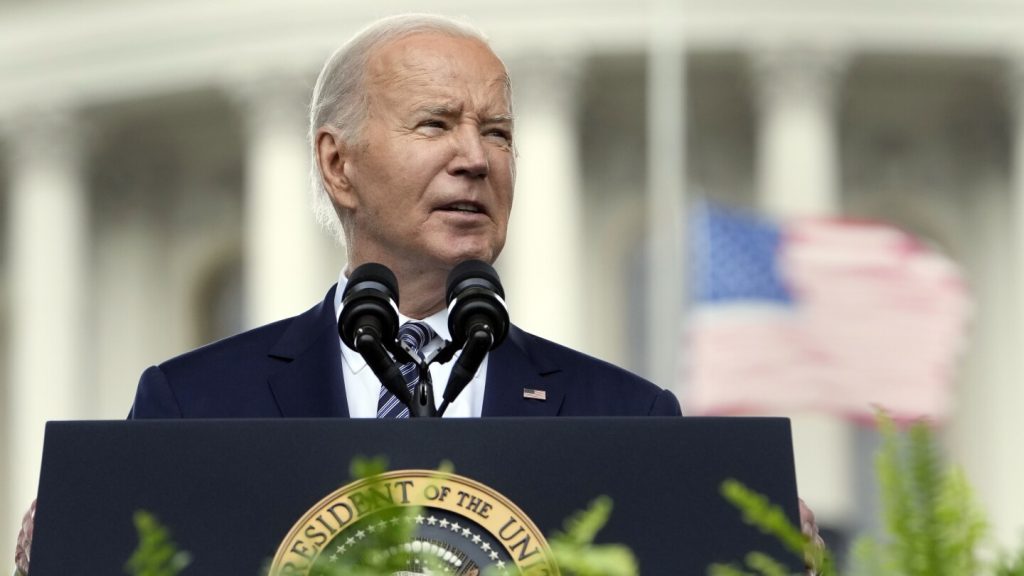The White House has refused to release audio recordings of President Joe Biden’s interview with a special counsel regarding his handling of classified documents. White House counsel Ed Siskel accused House Republicans of wanting to manipulate the recordings for political purposes, leading to a potential contempt of Congress charge against Attorney General Merrick Garland. The dispute over access to the recordings has become a focal point for Republicans seeking to hinder Biden’s reelection efforts in a closely contested campaign. Siskel argued that demanding sensitive law enforcement materials from the Executive Branch for political gain is inappropriate.
In response to the White House’s refusal to release the audio recordings, Attorney General Garland cited executive privilege, which protects a president’s ability to receive candid counsel from advisers without immediate public disclosure. Garland criticized Republican efforts to use contempt as a means of obtaining the recordings, calling them unfounded attacks on the Justice Department. The Justice Department warned Congress that a contempt effort would create unnecessary conflict and reiterated the longstanding position that an official asserting executive privilege cannot be held in contempt. The release of the audio could potentially exacerbate embarrassing moments from Biden’s interview with the special counsel, raising concerns in a contentious election year.
Special counsel Robert Hur’s investigation revealed the presence of classified documents in various locations tied to Biden, including the Penn Biden Center, Biden’s Delaware home, and his Senate papers at the University of Delaware. While many documents were deemed to have been retained by mistake, evidence of willful retention and disclosure was found in some records from Biden’s Wilmington home. These files related to a troop surge in Afghanistan during the Obama administration, an issue Biden had opposed. Biden had kept records documenting his position, including a classified letter to Obama during Thanksgiving 2009, which he later shared with a ghostwriter for his memoirs.
Hur, a former senior official in the Trump administration Justice Department, was appointed as special counsel in January 2023 to investigate the classified documents linked to Biden. The transcript of Biden’s interview with Hur showed instances where Biden struggled to recall dates and details, although aides noted that this was not unusual for him. At 81, Biden is the oldest president in history and is seeking reelection for another term. The release of the audio recordings could potentially impact his campaign, especially with concerns over how selectively releasing the recordings could highlight embarrassing moments from the interview. The ongoing dispute over access to the recordings reflects broader tensions between the White House and Congress, as well as concerns over the integrity of law enforcement investigations in the future.


